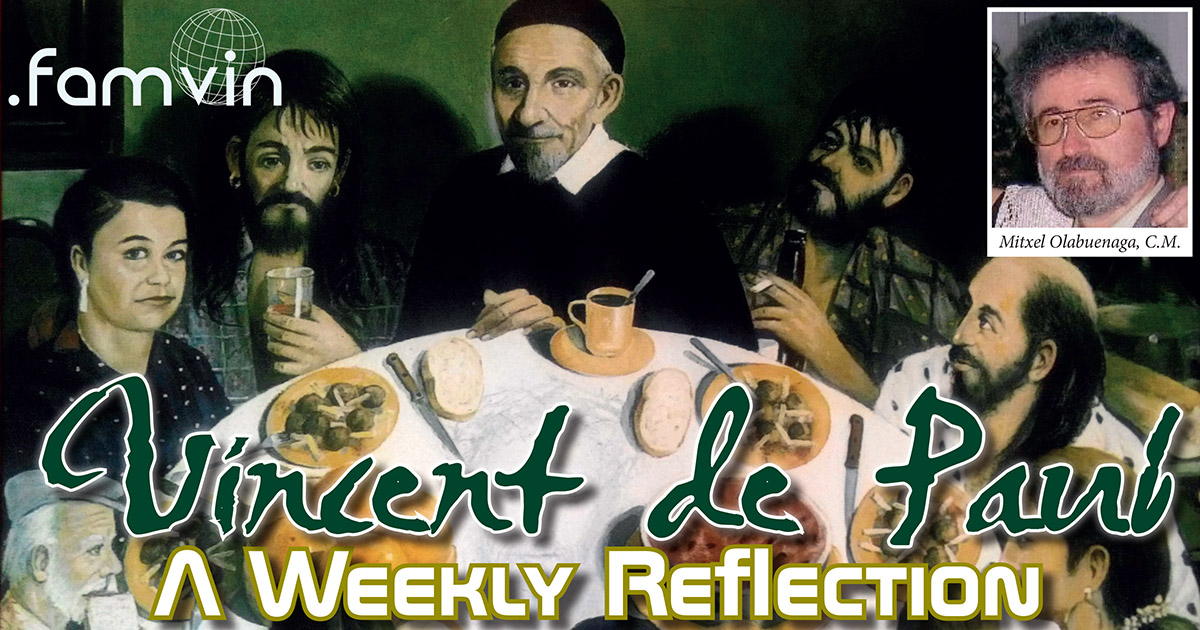“I must not judge a poor peasant man or woman by their appearance or their apparent intelligence, especially since very often they scarcely have the expression or the mind of rational persons, so crude and vulgar they are. But turn the medal, and you will see by the light of faith that the Son of God, who willed to be poor, is represented to us by these poor people; that He scarcely had a human face in His Passion, and passed for a madman in the mind of the Gentiles and a stumbling block in the mind of the Jews. With all that. He describes himself as the Evangelizer of the poor: He sent me to bring the good news to the poor.” (CCD:XI:26)
Vincent de Paul
Reflection:
- “He sent me to bring the good news to the poor.” A sentence repeated again and again. However, it is not a simple routine in Mr. Vincent but, according to each circumstance, he knows how to give it “intensity” and “quality.” In this case, he uses it as a “final motto” to make clear what the recipients of the evangelizing action are: peasants and POOR women.
- The Son on Man “willed to be poor” and so he evangelized the poor. In the path of following Jesus Christ, that is life, the inculturation of the agents with the recipients becomes of special importance. For Mr. Vincent is clear that only from this situation we can be efficient in our work. It is not, therefore, to be a “virtuous poor” but an “efficient poor,” that is, a poor “meaningful” to the poor who are intended to evangelize.
- See the reverse of reality: “eyes of the face — eyes of faith.” It is not easy to see happiness in poverty. For this reason, the statement “eyes of faith” acquires a singular meaning. Now: Is it possible to access from the eyes of faith without initiating this vision from the eyes of the face? … An interesting question that should lead us to a basic question: Is it possible to evangelize the poor without living like them?
- Two realities: “peasants and women.” They are, in this case, the privileged recipients of Vincentian efforts: “poor peasant or poor woman.” An expression of radical modernity even though at the level of industrialized countries it may sound archaic, especially as far as the peasantry is concerned. Let’s transform the term by “urban proletariat” and we will encounter situations as much or even more painful than those suffered by the peasants.
- Inhuman, crazy and scandalous: Three expressions that can qualify who is “one more of them to evangelize.” “Inculturation” can indeed be seen as a dehumanization for the one who “lowers;” of “crazy” may be called those who tries to paddle upstream the society; as “scandalous” is that the word and the work entail the prophetic denunciation of the situations and structures that generate people sunk in misery and poverty.
Questions for dialogue:
- Are our Communities inserted into the realities of the poor?
- Are the poor the actual recipients of our ministries?
- Is the reflection on the causes of poverty in our Community Projects?
- Are we personally involved in the accompaniment of some poor?
- Do our works with the poor have the highest quality?
Mitxel Olabuenaga, C.M.








0 Comments